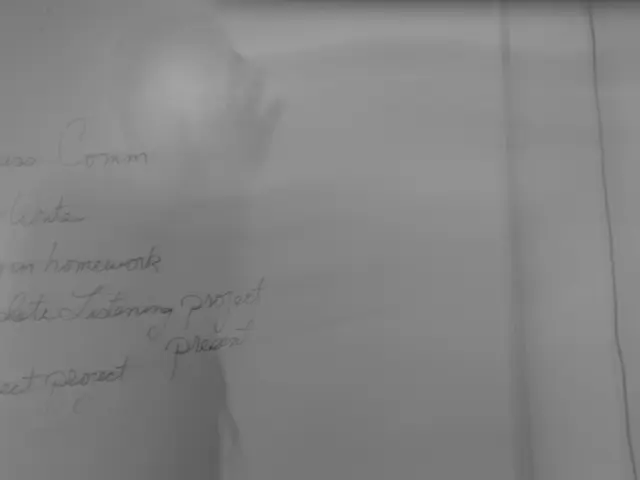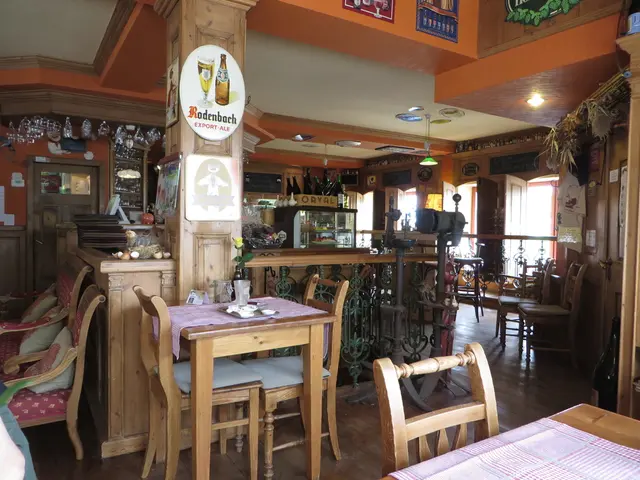Opposition to fast fashion movements aim to go against the rapid production, consumption, and disposal of clothing, advocating for sustainable and ethical practices instead.
Every Friday, students at Winterhude's district school transform their study space into a fashion atelier, repurposing discarded clothing and challenging the fast-fashion industry's practices. In this unique initiative, dubbed "PreLoved," the students give a new lease on life to donated clothing that wasn't distributed by the aid organization Hanseatic Help.
Under the guidance of teacher Julia Köster, the young designers, aged 11 to 13, assemble each Monday afternoon to work on their outfits for the upcoming fashion show in April. The forthcoming event is expected to attract 300 spectators, and with good reason. The students' designs are a testament to their creativity, resourcefulness, and the sustainable values they embrace.
However, before the first models can strut their creations on the catwalk, there is much work to be done. The students must select their colors and fabrics, cut, mark, and sew their projects, all under the watchful eye of teacher Köster. Yet, even in the midst of these laborious tasks, the classroom buzzes with excitement and determination.
The materials spread across tables and sideboards are a mix of denim fabrics, lace, textile dyes, and rhinestones. The room is filled with the hum of sewing machines and the soft murmurs of the young designers comparing patterns and colors.These pieces do not begin their lives as brand-new materials; they bear the marks of their former lives as store-bought clothes, their histories adding a unique touch to the upcycling project.
Pauline, 13, carefully tears apart the crotch seam of an old pair of jeans, as she plans to create a skirt. Her intention was initially to bleach the jeans, but the plan backfired, prompting her to go with her fallback option. Similarly, 11-year-old Rosa is working on a pair of jeans, sewing a red thread into a tear on the right thigh and embroidering her initial, 'R,' next to it. Meanwhile, Farida is designing an ensemble centered around lace, aiming to decorate the neckline of her shirt with it.
Farida's ambition reaches far beyond her school project. She aspires to become a successful and famous designer, and her outfit, featuring the bold inscription "Girl Power" across the back of her jeans, makes a confident statement. With her friend modeling a similar design next to her, they aim to send a powerful message on the catwalk that girl power is a force to be reckoned with.
In addition to their fashion-forward ideas, the students are also becoming increasingly aware of the environmental and social implications plaguing the fast-fashion industry. Teacher Köster's sewing course often delves into the origins of fabrics, the various materials used, the numerous handiworks involved in transforming textiles into garments, and the working conditions in the fast-fashion sector. Farida, for one, admits to having ordered from Shein, a popular online fashion retailer, and regrets her decision now that she understands the exploitative working conditions and unethical practices associated with the fast-fashion industry.
Farida's sewing course offers a solution to this issue. With the guidance of Almut Soetje, a grandmother who volunteered her expert sewing skills, Farida creates her culottes, reinforcing the importance of slow fashion and sustainable, inclusive clothing. The "PreLoved" atelier has gained attention beyond the school community, with coverage in local media outlets and successful fundraising efforts, such as the auction of a camouflage parka with a large, rainbow-colored smiley on the back for 500 euros, which was donated to the Kinderjahre foundation.
The "PreLoved" project is part of a broader movement towards sustainability and inclusivity in the fashion industry. By encouraging their students to repurpose clothes and raise awareness about the ethical and environmental impacts of fast fashion, the Winterhuder Reformschule is setting an example for other educational institutions and contributing to a much-needed paradigm shift in the fashion world.
- The students' repurposed clothing, created in the "PreLoved" atelier as part of their lifestyle education, are not just fashion statements but also emblems of sustainable-living and home-and-garden renovation, as they upcycle items for a second life.
- As the debate over sustainable-living practices spreads, the Winterhuder Reformschule's involvement in fashion-and-beauty with their unique project embraces not only creativity but also contributes to the home-and-garden movement by demonstrating resourcefulness and a commitment to reducing waste.







